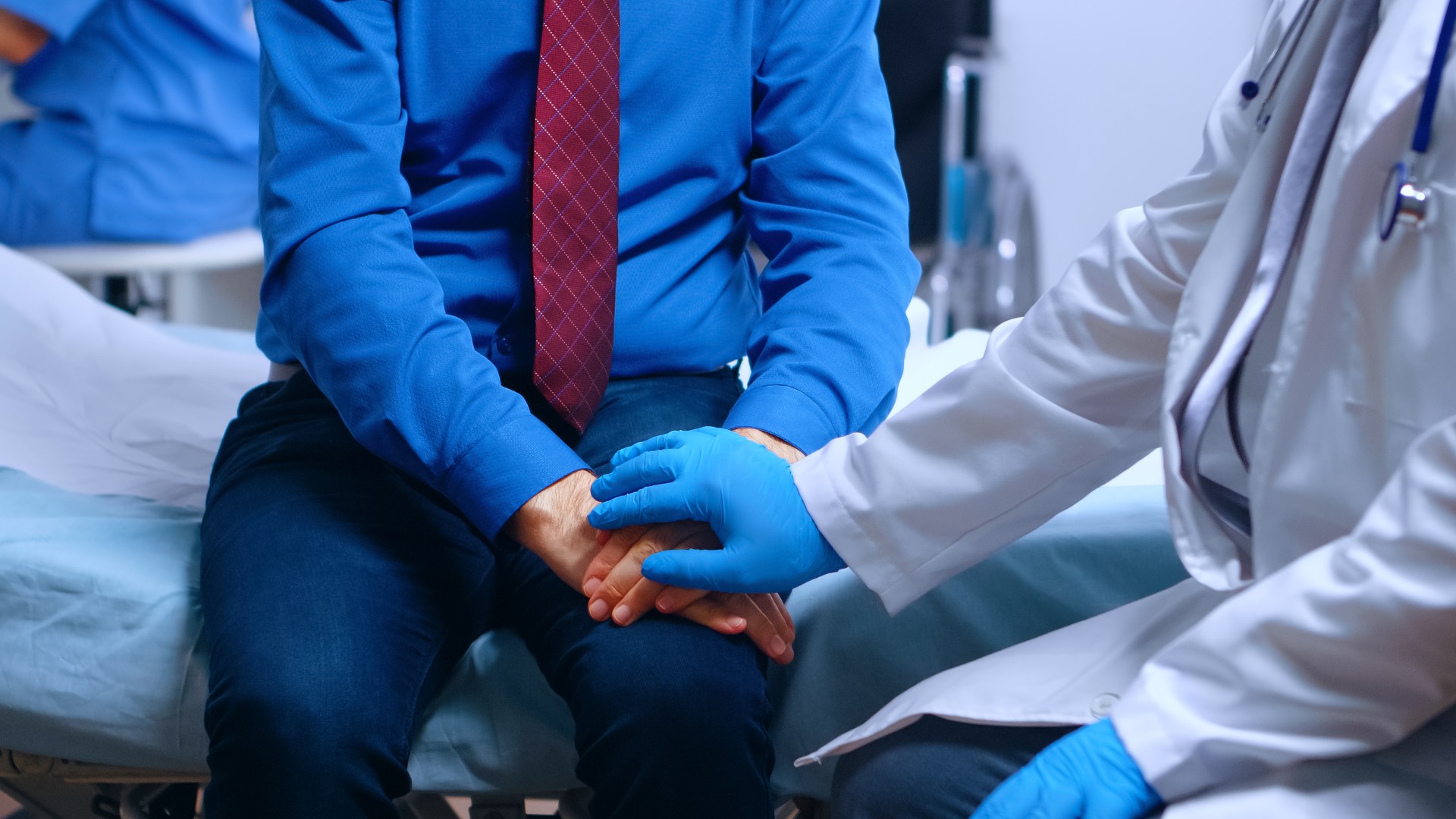When Infection Strikes: What Every Man Should Know About Acute Prostatitis
By Dr. David Samadi
If you’re a man experiencing sudden pelvic pain, burning when you pee, or flu-like symptoms, don’t brush it off—your prostate could be inflamed. Acute prostatitis is a condition you need to know about, mainly because it often shows up fast and hits hard.
Let’s break it down.
What Is Acute Prostatitis?
Your prostate is a walnut-sized gland that sits just below your bladder and wraps around the urethra—the tube that carries urine out of your body. Its main job? Producing fluid that mixes with sperm to form semen.
When this gland becomes inflamed, often due to a bacterial infection, it can cause a rapid onset of uncomfortable and even painful symptoms. That’s what we call acute prostatitis.
The infection usually happens when bacteria travel up the urethra into the prostate. It can also occur as a complication of a urinary tract infection (UTI) or following a prostate biopsy. In some cases, the bacteria are part of the body’s normal flora; in others, they may be introduced through sexual contact.
While any man can get acute prostatitis, it tends to be more common as men get older and the prostate naturally enlarges. The good news? There’s no connection between prostatitis and prostate cancer.
What Are the Symptoms?
Acute prostatitis symptoms tend to show up suddenly and may include:
- Burning or dribbling during urination
- Trouble starting to pee—or being completely unable to go
- Cloudy urine or visible blood in the urine
- Pain in the lower abdomen, groin, lower back, scrotum, or rectum
- Fever, chills, and flu-like symptoms such as body aches and fatigue
How Is It Diagnosed?
Your doctor will start with a physical exam and a digital rectal exam (DRE) to check the size and tenderness of the prostate. If it’s swollen and painful to touch, that’s a red flag.
You’ll likely provide a urine sample to look for signs of infection, white blood cells or bacteria. Blood tests can also help check for kidney involvement or bacteria in your bloodstream. In some cases, imaging like an ultrasound or CT scan may be needed if there’s concern about urinary blockage.
How Long Does It Last?
When treated promptly, symptoms often begin to improve within 24 to 48 hours. But more severe infections may take over a week to fully resolve. It’s important not to wait—early treatment leads to faster recovery.
Can It Be Prevented?
Unfortunately, most cases of acute prostatitis can’t be prevented. But practicing safe sex can reduce your risk of sexually transmitted infections that may lead to prostate inflammation. And if you suspect a UTI or other infection, seek care early—prompt treatment can stop it from progressing.
What’s the Treatment?
The primary treatment is antibiotics. For severe infections, these may be given through an IV in the hospital. For milder cases, oral antibiotics are usually prescribed. Because the prostate is a tough gland for antibiotics to penetrate, treatment typically lasts three weeks or longer.
If you’re extremely sick or having trouble urinating, you may need to be hospitalized for a short time. A catheter might be inserted temporarily to help drain your bladder if swelling is blocking urine flow.
Most men recover fully, but it’s crucial to complete the full course of antibiotics, even if you start to feel better.
When Should You Call a Doctor?
Don’t ignore symptoms. Seek medical attention right away if you have:
- Difficulty or pain with urination
- Blood or cloudiness in your urine
- Fever and severe pain in the back or groin
- Side effects from antibiotics include rash, nausea with vomiting, or intense diarrhea
Delaying treatment can allow the infection to spread, which can lead to serious complications, including hospitalization.
What’s the Outlook?
With the proper treatment, most men recover well from acute prostatitis. Some urinary symptoms, like urgency or hesitancy, may linger briefly, but they typically go away with time. Just remember—finishing your antibiotics is key to full recovery. Stay optimistic about your journey to full health.
Final Thoughts
Acute prostatitis isn’t something to try and tough it out. It’s a sudden and serious condition that deserves your attention. With fast diagnosis and the proper care, you’ll be back to feeling like yourself in no time.
Dr. David Samadi is the Director of Men’s Health and Urologic Oncology at St. Francis Hospital in Long Island. He’s a renowned and highly successful board certified Urologic Oncologist Expert and Robotic Surgeon in New York City, regarded as one of the leading prostate surgeons in the U.S., with a vast expertise in prostate cancer treatment and Robotic-Assisted Laparoscopic Prostatectomy. Dr. Samadi is a medical contributor to NewsMax TV and is also the author of two books, Prostate Cancer, Now What? A Practical Guide to Diagnosis, Treatment, and Recovery and The Ultimate MANual, Dr. Samadi’s Guide to Men’s Health and Wellness, available online both on Amazon and Barnes & Noble. Visit Dr. Samadi’s websites at robotic oncology and prostate cancer 911.

